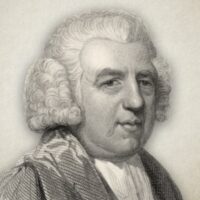May The Grace Of Christ, Our Savior
Some of the points covered in this sermon:
• Highlighting the subject and theme of the hymn—Covenant Blessings, the assurance and joy of the covenant blessings of God and His church
• Explaining the meaning and significance of a covenant
• Showing how the covenant of works, covenant of grace and a church covenant fit together according to the framework of sovereign grace
• Expounding the two stanzas of Newton’s hymn
• Stanza 1: The Gracious Covenant
• Stanza 2: The Church Covenant
• Showing how Paul’s farewell blessing in 2 Corinthians 13 aligns with Newton’s hymn
Some of the points covered in this sermon:
• Reviewing the subject and theme of Newton’s hymn, “May The Grace Of Christ, Our Savior”
• Aligning Newton’s hymn with the teachings of Paul in 2 Corinthians 13:11-14
• Expounding verse 14, as it relates to the gracious covenant between the three Persons of the Godhead
• Expounding verses 11-13, as it relates to the church covenant between the baptized believers of the congregation
• Verse 11, the first obligation as church members—be in harmony with one another
• Verses 12,13, the second obligation as church members—be hospitable to one another
John Newton (1725-1807) was an English Anglican preacher, hymn writer and humanitarian. Prior to faith in Christ, he served as the captain of slave ships and made a living in the slave trade. After his conversion to Christ, he renounced slavery and became one of the leading abolitionists in England. He was ordained a cleric in the Church of England serving as parish priest at Olney, Buckinghamshire, for twenty years. Among Evangelical circles, he is best known for his hymns, among which are “Glorious Things Of Thee Are Spoken” and “Amazing Grace”.
John Newton Hymn Studies





